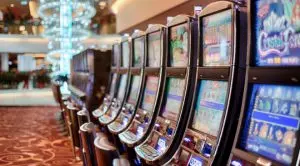 According to a recent study, the Victorian Commission for Gambling and Liquor Regulation (VCGLR) approved almost 90% of the licence applications for poker machine operations that it had received, despite the fact that even players are aware of the fact they could hardly generate any winnings while playing the pokies.
According to a recent study, the Victorian Commission for Gambling and Liquor Regulation (VCGLR) approved almost 90% of the licence applications for poker machine operations that it had received, despite the fact that even players are aware of the fact they could hardly generate any winnings while playing the pokies.
For the time being, the gambling regulator has to take into consideration the views of the local council during its decision-making process but despite that, council opposition hardly ever stops a proposal, and such cases are usually quite demanding, expensive and hard to win. On the other hand, not all councils have the willingness and resources for such a battle, with the problems remaining for local communities and councils.
Even when councils do not agree with a licence application for a poker-machine venue, the applicants are granted permission to operate pokies in up to 80% of the cases. Under the provisions of the Planning and Environment Act 1987 and the Gambling Regulation Act 2003, the importance of local influence on poker machines distribution is acknowledged.
Normally, regulatory procedures, including the ones related to poker machine regulation, are complex and demand resources, which makes it possible for local councils to actually win a case against operators.
Campaigners Say Socially and Economically Disadvantaged People Usually Fall Victim to Pokie-Related Harm
 Pokies have been considered one of the greatest harms that could happen to vulnerable gamblers in Australia. Anti-poker machine groups have claimed that the very design of these electronic gaming terminals makes them highly addictive so that they encourage players to spend more and more time and money on them.
Pokies have been considered one of the greatest harms that could happen to vulnerable gamblers in Australia. Anti-poker machine groups have claimed that the very design of these electronic gaming terminals makes them highly addictive so that they encourage players to spend more and more time and money on them.
According to anti-gambling campaigners, poker machines could be blamed for a lot of public health issues in local communities, including domestic violence, suicide and bankruptcy. Protesters even claim that permitting poker machines is immoral, but the regulatory system of the state of Victoria keeps the focus on utility rather than on the ethical basis of the terminals that remains unaddressed and unconsidered. Unfortunately, the assessment of pokies’ utility implies that the most disadvantaged and vulnerable members of communities must accept the possible harm that could be inflicted by gambling so that the entire community benefits from the freedom to gamble and the benefits brought by this form of gambling.
What remains concerning, is the fact that most of the poker machine revenue, and taxes, respectively, are generated by socially and economically disadvantaged people, so anti-gambling campaigners have been claiming that the inferior social and economic infrastructure of such areas only adds to the injustice to these people.
Unfortunately, the current regulatory approach does not seem to be good enough to weight to anti-gambling campaigners’ concerns, and the system does not manage to be in line with public expectations that it would provide fair and just regulation to poker machine operators.
- Author


